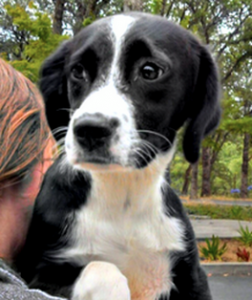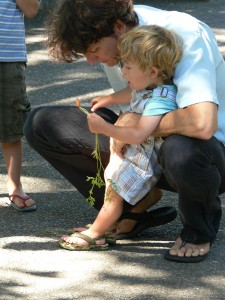|
|
January 5, 2018
Twenty years ago I set up shop as Hey Terra at TheInSite.org to help teens manage their emotions responsibly so they can develop self-respect and maintain healthier relationships. 50K teen emails later, the most common question I get is still about the challenges of dealing with feelings and speaking up for oneself in a friendship.
 I know exactly what you need! Our kids don’t know how to resolve peer conflicts non-violently. Retaliating with social garbage is a form of violence. Suffering silently is a form of self-inflicted violence. If teens can’t master interpersonal skills, it doesn’t matter how high their GPA is, they’re not going to be happy and successful in any measure that counts.
Teen email question #50,001:
Hey Terra,
I’ve never really trusted my best friend with my secrets because she always blurts them out even if she promises she won’t. Recently a boy has been messaging me and telling me that he likes me. Of course went to my best friend and told her. She asked if I liked him. I said I did. That was a mistake! She told my other friends who I really didn’t want to know because they gossip. Now my best friend is messaging the boy and telling him everything I’ve said about him.
“I’m not really one that stands up for myself cause I don’t want to make other people mad at me. So, sticking up for myself is not really an option here. I know I sound pathetic but I can’t help it.”
Anyways, she keeps saying, “He really likes you!” and it’s making me feel bad because I now realize now that I just want to be friends with him. I’ve told him I don’t want a relationship with him right now and that we are just friends. He’s okay with that but now that my best friend is messaging him he’s like “When will you be ready to date???” I know she is telling him to say this stuff.
I’ve tried to tell her that I’m not really into him any more but she gets mad and is like, “You are so annoying! If I had a chance like this I wouldn’t pass it up, so if you do we won’t be friends anymore.”
I know any person would stick up for themselves but I physically can’t. She will get mad at me and I really don’t want to lose her as a friend. She is my comfort zone we’ve been friends forever. I have other friends but if me and my best friend aren’t friends anymore she will turn them all against me and I’ll have nobody.
I guess what I’m really asking is: What should I say to my friend to make her not be mad if I “breakup” with this boy…? – Scared
Dear Scared,
I understand why you’re scared. Most people would be a little nervous to have a conversation like this. But I don’t buy that you can’t do it. You can. And you really ought to learn how. Slow deep breaths can help make you feel calmer and braver. So does practicing what you want to say before you’re standing in front of the person who needs to hear it.
As scary as talking to your friend may be, it’s important to do it any way. Why? Because if you don’t learn to how to tell people what is and is not okay with you, then you will continue to feel powerless. But if you speak up when someone’s not treating you well, you are much more likely to be respected. And for sure, you’ll have more respect for yourself.
Your friend may mean well or she may just like to be in charge… of everything. Either way, this is your life, not hers. You say if you stick up for yourself she will get mad at you and you’ll risk losing her as a friend. That’s a possibility. But before you decide that is not a risk you ever want to take, please answer this question: What is your definition of a friend?
In your mind, is a best friend someone:
- I can’t trust with my secrets because she “always blurts them out even if she promises she won’t?”
- who texts a guy and tells him “everything I’ve said about him?”
- who blabs my business to other people?
- who doesn’t seem to care what I want (in this case: no romantic relationship with this boy)
- who keeps pushing forward as a matchmaker when I don’t want her to?
- who doesn’t listen to what I say and tells me that I am “so annoying” for wanting to decide when I want to date someone or even if I want a boyfriend at this time in my life?
If your definition includes any or all of the above, you’ve got the perfect best friend. If not, maybe it’s time to reimagine what kind of friend would be a better fit for you.
I hope this helps!
In friendship,
Terra
P.S. Happy New Year. May 2018 bring you many opportunities to shine your light.

October 23, 2013
 I seriously need a friend. Kids and teens can view of themselves as powerless in a world where adults call all the shots. But that’s not the whole story. Kids have power. And every day, your children and mine get opportunities to use that power to do good or to do harm. Sometimes, turning a blind eye and choosing to do nothing results in more harm.
If we, truly value kindness and appreciate it when it comes our way, we can’t ignore suffering. We’ve got to do our part to keep kindness alive… every chance we get. And we’ve got to teach our kids to be kind. But how?
Child or adult, it takes extra social courage to exit our comfort zone and to help a vulnerable person. When kids ask me about standing up for someone who is being harassed, I tell them they should never put themselves directly in harm’s way. But I make it clear that there are many ways to help an underdog and let him or her know: “I’m not like the others who are giving you a hard time. I’m here to help.”
Fuel for Thought (for adults) —At different times we have all been underdog, top dog, and middle of the pack dog, so we know what it feels in each of those places. Being on the bottom, without support, can be terribly lonely. Think about a time when you felt like an underdog. Where did you turn for support? What response did you get? Think of a time when you helped an underdog. What happened?
Conversations That Count (with kids)– Talk about the concept of a “pecking order” amongst animals and humans. Say this to your children: “Most of the time, when we’re not on the bottom, we don’t give much thought to those who are.” Now ask your kids what they think about that. True? Not true? How do you know? Talk about who is “on the bottom” in your child’s class. (Even kids as young as second or third grade have a keen awareness of social strata.) How do other people treat that child? How do you treat that child? What might happen if you stood up for the underdog?
Teach—Challenge your child to be a hero and shake up the social strata at school by standing up for someone who needs a friend. Follow up and find out from your child what happened with the challenge.
Please let me know how you teach your kids about the importance of standing up for the underdog.

May 28, 2013
 Reliable+Strong+Gentle=Dad
Any dude can father a child but it takes a real man to be a dad. Dads are all in, heart and mind, for the long haul, encouraging their kids to become self-reliant young adults. Dads also teach by example that everyone (including children) deserves respect. When we see people treated unfairly it’s not enough to feel uncomfortable. Dads help their sons and daughters develop the social courage it takes to make things better.
OK. Enough of the high-level stuff. Let’s talk in-the-trenches, day-to-day. How does Dad do his best for his kids, especially when they are teens? Check out these tips. Make them part of your daily routine and you’re on your way:
- Be a safe person to talk to. When your child wants to discuss tongue piercing, a solo cross-country trip, or dropping out of school to pursue hip-hop, stay calm. Take a deep breath. Take ten of them. Fyi, no one’s asking you to approve of every one of your kid’s crazy ideas. But kids need you to listen with respect. And if they ask for advice (don’t give it if they don’t ask), be a consultant and offer your wisest counsel. But do not freak out. Otherwise, they won’t seek your input; they’ll just go behind your back and do whatever they damn please. Which they may do anyway, but at least your voice will be in their head and yes, that can be a powerful antidote to stupidity.
- Catch them in the act of doing something right. Some fathers believe you teach responsibility by berating kids when they mess up. That’s actually backwards and Dad knows it. Unacceptable behavior is unacceptable. No quibble there. But your kid is more likely to do the right thing consistently when you notice. You don’t need to throw a pizza party or give out gold stickers. Just say something simple like: “It was nice of you to help your brother with his homework.” End of celebration. Simply praise the behavior you want to see more of. It works with kids. Spouses, too.
- Show your squishy side. There are plenty of fathers who act all mucho macho. But Dad isn’t afraid to express “softer” emotions in front of his kids. He’s also equally at ease when his girls and his boys are upset. When you show your family it’s more than OK to cry, to be afraid, to be compassionate, you teach your sons what it means to be a real (hu)man. And you raise the bar for the kind of partner your daughter will want.
Dads, your love, support and encouragement are essential to your children’s health and well being, so keep up the good work. And Happy Dad’s Day. Enjoy the attention. You deserve it.

November 20, 2012
The following is an excerpt from my new parenting book, Teaching Kids to Be Good People. It’s from the chapter on Emotional Intelligence.
 If you try you might get what you need Right before Thanksgiving a few years back, my dear friend Bettina, who was having some health issues, emailed me: “I know this is incredibly presumptuous and Miss Manners would be scandalized, but I’m wrangling for an invitation.”
I was blown away. Not by her directness (God no!), but by her feeling that she had no right to say, “I’m not feeling well and I don’t want to be alone. Can I come over?” Immediately I called and thanked her for trusting me to understand her vulnerability. I also gave her top marks for the way she had honored herself by asking for what she needed. She was relieved to hear that she’d done the right thing by speaking up.
Most of us are much quicker to stand up for others than for ourselves. On some level we must believe we don’t deserve to get our emotional needs met. But where does that foolishness come from? Here’s my theory . . .
Babies are irresistibly cute so adults fall hard and take good care of them. Once they’ve gotten their sweet baby hooks into our hearts, they are experts at expressing their physical and emotional needs, nonverbally. As our children grow, our conversations with them center mostly on the physical aspects of life: Sweetheart, are you hungry? Do you want something to drink? Is it nap time? Why don’t you put on a sweater? As a result, asking for tangible stuff is very easy for kids: Dad, I need a ride. Mom, I need you to sign this. I need a new phone. I need money.
Because most parents don’t teach kids about expressing emotional needs, teens rarely say: I need a hug. I need to share this exciting news! I need you to listen. I need you to tell me the truth. I need help.
I asked a bunch of sixth–eighth graders to rate themselves on these two statements: “It’s easy for me to ask for help” and “I pretend things are OK when they aren’t.” The results? Twenty-five percent of the kids said it was “never or almost never” easy to ask for help. Another 25 percent reported that “sometimes” they had trouble asking for help. And here’s another sad finding: A whopping 83 percent admitted that “sometimes, always, or almost always” they pretend things are OK when they aren’t.
An unwillingness to ask for help, coupled with a habit of pretending things are fine when they’re not, is unhealthy. When we deny our human need to connect heart-to-heart, we end up short-changing ourselves and the people we’re closest to.
A parent’s role is to raise an emotionally healthy young adult. That includes helping a child recognize what s/he’s feeling and learning to ask for support when needed. Of course self-reliance is essential and being able to calm yourself at times of stress is a life skill, but there’s no denying that we all feel vulnerable at times. It’s also true that we’re all interdependent. When we let people know how we feel and allow them to love us and help us, we honor our humanity. We do the same when we love and help others.
On that Thanksgiving, my family and I were heading out of town, so our home was going to be cold and dark. I couldn’t offer Bettina a warm place at our table. But with my encouragement, she was confident enough to express her needs to another friend who gladly opened his heart and home. What would surely have been a sad and lonely day for her, turned into a wonderful occasion. Less than two years later, Bettina died. Thinking about her, then and now, I’m comforted knowing that she wasn’t alone on one of her last Thanksgiving holidays. She was brave enough to reach out and ask for what she needed. Bettina taught me a powerful lesson, especially important when we’re vulnerable: When it comes to friends and family, hold nothing back. Allow yourself to love and be loved fully, without limits.
Happy Holidays, from our family to yours.

| |















